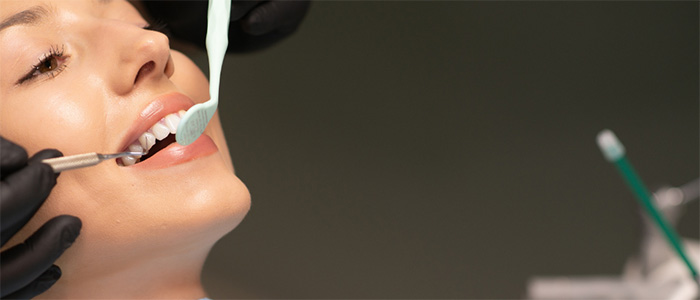
Spicy Korean Beef with Cucumber Salad
1 November 2025
Dental Implants vs. Dentures: Which Is Right for You?
1 November 2025Dental problems can happen suddenly, and not all of them can wait until the next available appointment. But how do you know when an issue is urgent enough to count as a dental emergency? Understanding what requires immediate attention — and what can be managed with temporary care — can make all the difference in protecting your teeth, relieving pain, and avoiding long-term damage.
What is a dental emergency?
A dental emergency is any situation involving the teeth, gums, or mouth that needs immediate attention to relieve pain, stop bleeding, prevent infection, or save a tooth. While some problems are inconvenient but manageable for a short time, others demand urgent care to prevent serious consequences.
Common types of dental emergencies
There are several situations where it is important to seek emergency dental care straight away:
- Severe toothache: Persistent or intense pain that does not improve with over-the-counter medication can indicate infection or deep decay.
- Knocked-out tooth: Quick action is critical. If the tooth is handled correctly and replaced within an hour, it has the best chance of being saved.
- Broken or cracked tooth: Significant fractures can expose the nerve and cause pain or infection.
- Uncontrolled bleeding: After trauma or dental surgery, bleeding that will not stop requires immediate care.
- Swelling of the face or jaw: This can signal a serious infection that may spread if not treated urgently.
- Abscess: A pus-filled swelling in the gum is a clear sign of infection and requires prompt treatment.
Situations that are urgent, but not emergencies
Some dental issues can be uncomfortable but do not always require immediate emergency care. These include:
- A lost filling or crown
- Mild tooth sensitivity
- A small chip in a tooth without pain
- Food trapped between teeth that cannot be removed with floss
While these issues should still be addressed by a dentist, they can often wait for a standard appointment without risk of serious harm.
What to do in a dental emergency
Knowing how to respond before reaching a dentist can improve the outcome:
- For a knocked-out tooth: Hold it by the crown, not the root. Gently rinse it with water if dirty, but do not scrub. If possible, place it back in the socket. If not, keep it in milk or saliva until you can see a dentist.
- For severe toothache: Rinse with warm salt water and use over-the-counter pain relief if needed. Avoid placing aspirin directly on the tooth or gum.
- For bleeding: Apply gentle but firm pressure with a clean cloth or gauze. If bleeding continues beyond 10–15 minutes, seek help urgently.
- For swelling: Apply a cold compress to the outside of the cheek and seek care as soon as possible.
Why fast treatment matters
Delaying treatment in a true dental emergency can have lasting consequences. Infections can spread quickly, knocked-out teeth may be lost permanently, and untreated pain can worsen dramatically. Quick action not only relieves discomfort but also improves the chance of saving teeth and avoiding further complications.
The role of regular check-ups
While accidents cannot always be prevented, many dental emergencies result from untreated issues that build up over time. Regular check-ups help detect cavities, gum disease, and other concerns before they turn into painful emergencies. Preventive care reduces the risk of sudden problems and ensures that if an emergency does occur, the rest of the mouth is healthy enough to support recovery.
Taking the next step
A dental emergency can be stressful, but knowing when to seek urgent care — and how to respond in the moment — makes all the difference. Severe pain, swelling, bleeding, or a knocked-out tooth all count as emergencies and should never be ignored.
Book an appointment today if you have urgent dental concerns, and let a professional team give you the care and relief you need without delay.




